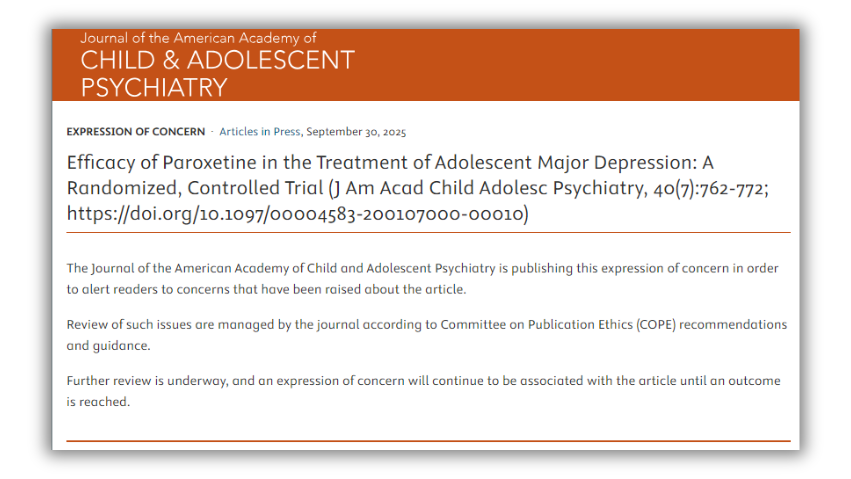
After more than 20 years of criticism and calls for retraction, a journal has placed an expression of concern on a study of the antidepressant Paxil in teens that critics say has led to unwarranted and potentially harmful prescribing of the drug to youth.
The 2001 paper, published in the Journal of the American Academy of Child & Adolescent Psychiatry (JAACAP), reported findings from a randomized trial known as “Study 329,” which concluded the antidepressant Paxil was safe and effective in kids ages 12 to 18.
In 2012, Paxil maker GlaxoSmithKline agreed to pay $3 billion to settle civil and criminal charges that included “unlawful promotion” of the drug for adolescents, for whom the product was never approved, and allegations the company “participated in preparing, publishing and distributing a misleading medical journal article” — the JAACAP paper. A reanalysis in 2015 found the drug was “ineffective and unsafe” for the age group studied.
Continue reading Controversial Paxil “Study 329” earns expression of concern after critic sues publisher